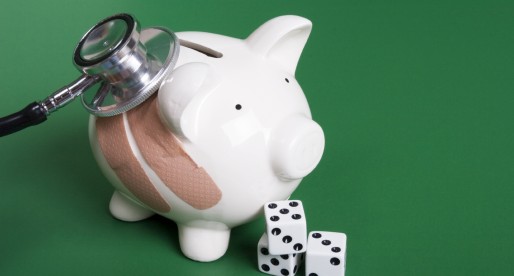
Socioeconomic disparities in health are nothing new; it’s long been known that wealthier and more educated people live longer, healthier lives than their poorer, less educated counterparts. But it turns out that this gap is widening significantly, and it’s affecting women the most.
According to a new report from the U.S. National Academy of Sciences, rich women will live more than 13 years longer and draw tens of thousands of dollars more in federal retirement benefits than poor women. And despite gains in life expectancy among high earning women, poor women are actually losing ground: Compared to those born in 1930, poor women born in 1960 are dying around four years younger. The report focused on what the disparity could mean for U.S. programs like Social Security and Medicare, but that is only one reason that the life-span gap should worry us.
Wealth and income inequality have increased sharply in the past 30 years, surpassing Depression-era levels and leaving more people than ever struggling to find stable jobs that pay enough to cover basic expenses and health care. Americans at the very top of the scale are earning more than ever, but incomes for those at the bottom of the economic spectrum are actually decreasing. This gap has only grown wider since the economic recovery began in 2009, with the richest 1% benefiting from an astounding 95% of the economic gains, and the remaining 99% of earners sharing just 5% of gains.
The growth of economic inequality is not just shifting more wealth to the rich — it’s also making it harder for poor people to rise out of poverty. It’s expensive to be poor. Many people who live in poverty can’t get bank accounts, which means they have to rely on check cashing and pay day loan companies that charge high fees. It’s also hard to eat well thanks to food deserts, which are located almost exclusively in poor neighborhoods, and opportunities for physical activity are often limited in poor communities. Additionally, the unpredictable work hours of low-wage jobs and inconsistent public transportation systems in many parts of the country add huge amounts of stress to things that many of us take for granted.
The stress and social inequities associated with poverty manifest themselves in both physical and mental health disparities. By some accounts, the stress of poverty is even more harmful to human health than the stress of warfare. In fact, research has shown that the mental stress of being poor is a major reason that low-income people are more likely to have high blood pressure, cholesterol, and become obese or diabetic, since long-term stress creates hormones that compromise the immune system and promote weight gain. And increasing evidence indicates that countries with higher levels of economic inequality have significantly greater disparities in health outcomes ranging from life expectancy and premature death to infant mortality and obesity. Even modest increases in wealth inequality are associated with more than double the cumulative risk of death over a 12-year period.
These inequalities have massive implications for public policy. When very wealthy people live longer, they collect more money over the course of their lives, even if they already have more than enough to live comfortably, pay for their health care, and provide for their families after they’re gone. The poorer people who die early are paying for something that won’t help them, and that money goes to the rich. And thus continues the cycle of poverty and poor health.
There’s a good reason for young women to worry about this: Most Republican candidates running for president believe that major cuts should be made to the federal benefits programs that this report examined — namely, Social Security, Medicare, and Medicaid — even though dismantling the system could leave millions of elderly people in poverty and would ultimately redistribute even more wealth from the lowest to the highest earners. That would have lasting impacts on parents and grandparents — and the generation of women just starting their careers.
